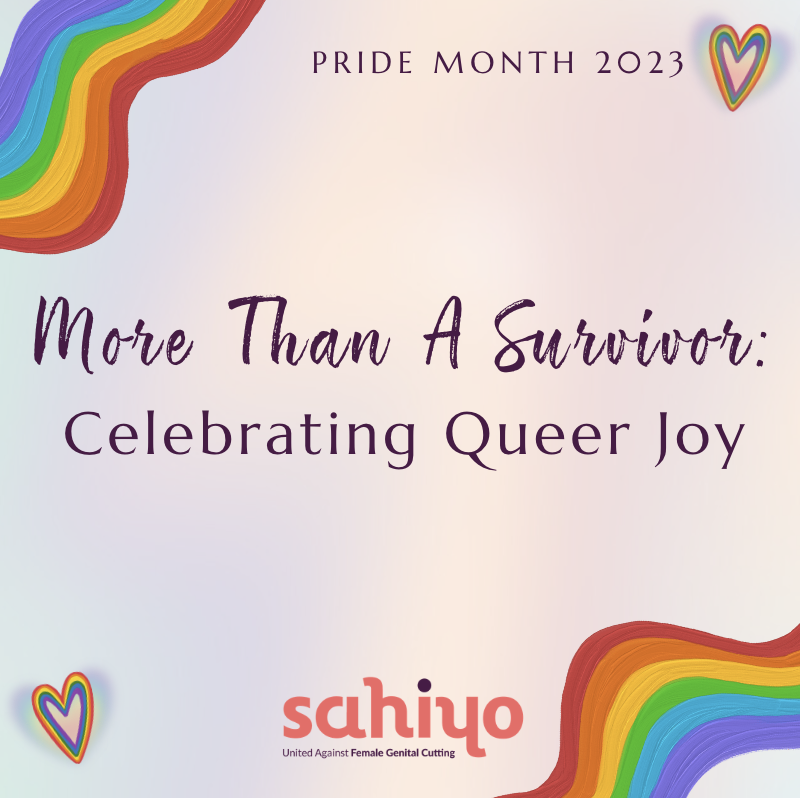At Sahiyo, we recognize that our work to end female genital cutting (FGC) does not exist outside of Queer liberation, and members of the survivor community who are Queer have distinct experiences that deserve to be seen, heard, and made room for in the FGC sphere. Whether this means incorporating more gender-inclusive language, clarifying that outdated statistics only capture the experiences of women and girls, or providing a sense of community for Queer survivors, we are just getting started.
Pride Month is a time for celebration, protest, and remembrance, of the challenges, and joys, surrounding Queerness and Queer liberation. Occurring every June in homage to the Stonewall Riots, Pride speaks to the enduring spirit of resistance against challenges that have historically affected, and continue to affect, the Queer community. To this end, Pride has a multifaceted purpose: it is as much advocating against the ongoing oppression of Queer folks and calling attention to human rights abuses occurring globally as it is dancing in the street and raucously cheering at a parade.
To celebrate this Pride Month, we chose to uplift an angle of FGC survivorship and Queerness that honors and celebrates joy. Inspired by a conversation with Dena Igusti, a trans non-binary survivor of FGC, the significance of a “joy-centered campaign” became apparent:
“I think it would be really great to see more campaigns where it's seeing folks who are also Queer, who are also survivors, but also, overall, are also just doing well… Just hanging out, having fun, and also showing us outside of just trauma. I think it's one of those things, a combination of wanting to know that exists and that I'm not alone… But also I think it is also nice to know other aspects of these survivors outside of what was done to them.”
To Dena, seeing other survivors, or non-binary folks, outside of the context of their trauma gives them hope:
“What was so important for me was… seeing them outside of [survivorship] and after that; looking back and being like, ‘Yeah, I went through that.’ It was a wild ride, but they get to have this joy and hope of saying everything in past tense. ‘This was horrible.’ ‘This was awful.’ ‘This was painful, but I'm here now.’”
While we continue to push for inclusivity and intersectionality beyond the scope of this month, which includes discussing and working to address the unique challenges that affect Queer survivors, we hope to also uplift and celebrate our community members who are More Than A Survivor; they are here, Queer, and finding their joy.

